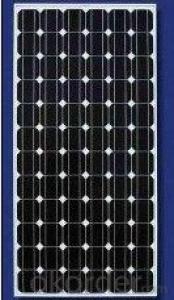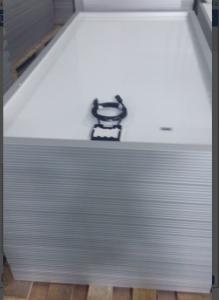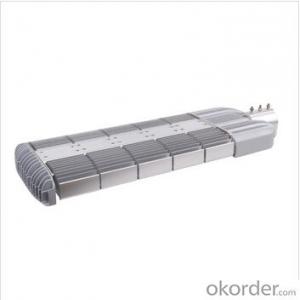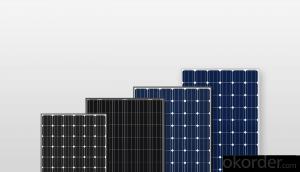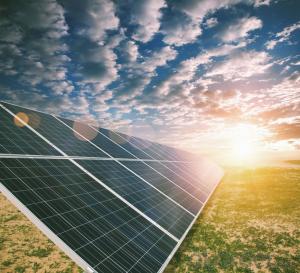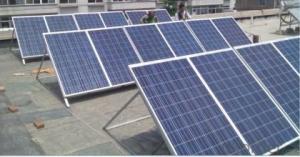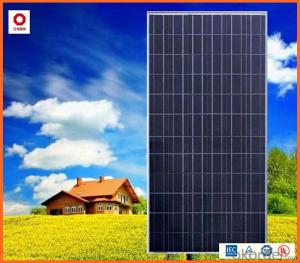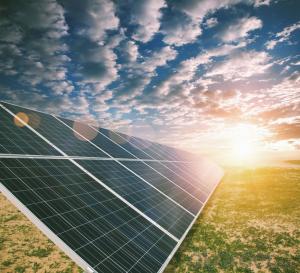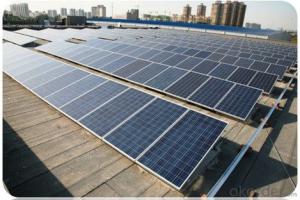Ecoflow Delta Pro Compatible Monocrystalline Silicon Solar Panel (260W)
- Loading Port:
- China main port
- Payment Terms:
- TT OR LC
- Min Order Qty:
- 10000 watt
- Supply Capability:
- 100000 watt/month
OKorder Service Pledge
OKorder Financial Service
You Might Also Like
Instruction
Poly-Crystalline solar panel, Poly 156 cell, 60pcs.
Power range 230W-260W.
Quality and Safety
1. Rigorous quality control meets the highest international standards.
2. High-transmissivity low-iron tempered glass, strong aluminium frame.
3. Using UV-resistant silicon.
4. IS09001/14001/CE/TUV/UL
Feature
Warranties
1. 10 years limited product warranty
2. 15 years at 90% of the minimal rated power output
3. 25 years at 80% of the minimal rated power output
Images
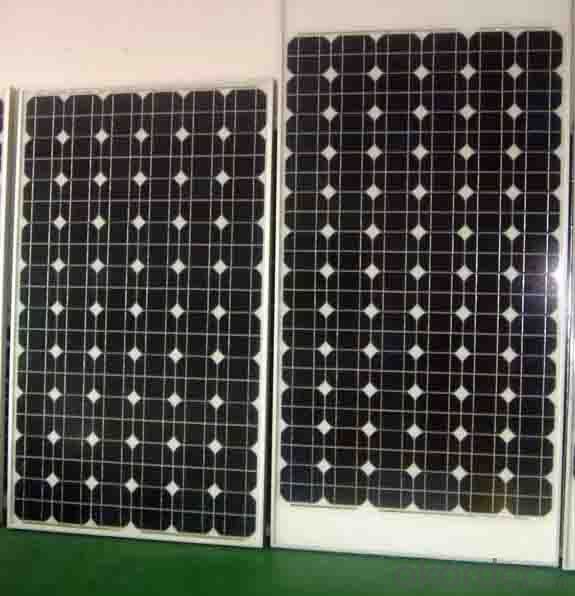
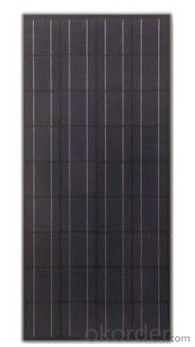
Specification
Technical date
ITEM NO.: | Poly 156*156 cell ,60pcs . Power range from 230Wp-260Wp | ||||||
Maximum Power(W) | 230 | 235 | 240 | 245 | 250 | 255 | 260 |
Optimum Power Voltage(Vmp) | 29.4 | 29.5 | 29.7 | 30.1 | 30.3 | 30.5 | 30.7 |
Optimum Operatige Current(Imp) | 7.83 | 7.97 | 8.08 | 8.14 | 8.25 | 8.37 | 8.48 |
Open Circuit Voltage(Voc) | 36.7 | 36.8 | 36.9 | 37.1 | 37.3 | 37.5 | 37.7 |
Short Circuit Current(Isc) | 8.52 | 8.59 | 8.62 | 8.65 | 8.69 | 8.73 | 8.78 |
Solar Cell: | 156*156 Poly | ||||||
Number of Cell(pcs) | 6*10 | ||||||
Brand Name of Solar Cells | JA Cell, Bluesun Cell | ||||||
Size of Module(mm) | 1650*992*40/45/50 | ||||||
Cable & Connector Type | Pass the TUV Certificate | ||||||
Frame(Material Corners,etc.) | Aluminium-alloy | ||||||
Back sheet | TPT | ||||||
Weight Per Piece(KG) | 19.5KG | ||||||
FF (%) | 70-76% | ||||||
Junction Box Type | Pass the TUV Certificate | ||||||
Tolerance Wattage(e.g.+/-5%) | ±3%, or 0-3% | ||||||
Front Glass Thickness(mm) | 3.2 | ||||||
Temperature Coefficients of Isc(%) | +0.04 | ||||||
FAQ
1. Q: Are you a factory or trading company?
A: We are a factory.
2. Q: Where is your factory located? How can I visit there?
A: Our factory is located in Huzhou, Zhejiang, China, near Shanghai. You are warmly welcomed to visit us!
3. Q: How can I get some samples?
A: Please connect me for samples, and my phone number: +86 158 5821 3997.
4. Q: Can the price be cheaper?
A: Of course, you will be offered a good discount for big amount.
- Q: Can solar panels be installed on sloped roofs?
- Yes, solar panels can be installed on sloped roofs. In fact, sloped roofs are one of the most common types of roofs where solar panels are installed. The angle of the roof can be adjusted to optimize the positioning of the solar panels and increase their efficiency.
- Q: Are there any maintenance requirements for solar panels?
- Yes, solar panels do require some maintenance. Regular cleaning to remove dust and debris is recommended to maximize their efficiency. Additionally, inspecting the panels for any signs of damage or wear, and ensuring proper wiring and connections, are important maintenance tasks.
- Q: Can solar panels be installed on concert venues or music festivals?
- Yes, solar panels can be installed on concert venues or music festivals. In fact, many venues and festivals are increasingly adopting solar power as a sustainable and renewable energy source. Solar panels can be installed on roofs, canopies, or even on the ground surrounding the venue, providing clean energy to power the event and reduce its carbon footprint.
- Q: How do solar panels affect insurance rates?
- Solar panels can potentially lower insurance rates for homeowners. While the installation of solar panels adds value to a property, it also reduces the risk of damage caused by fire, as these panels produce electricity without combustion. As a result, insurance companies may offer discounts or lower premiums due to the reduced risk of fire-related claims. However, it's important to consult with your insurance provider to understand the specific impact on your insurance rates, as policies can vary.
- Q: Can solar panels be installed on a historic building?
- Yes, solar panels can be installed on a historic building. However, it is important to carefully consider the impact on the building's aesthetics and historical integrity. Specialized techniques and materials may be required to ensure that the installation is done in a way that preserves the building's unique architectural features. Additionally, it may be necessary to obtain permission or meet certain requirements from local historic preservation authorities before proceeding with the installation.
- Q: Can solar panels be installed on a small scale?
- Yes, solar panels can definitely be installed on a small scale. In fact, they are highly versatile and can be installed on rooftops, balconies, or even in small yards. The size and capacity of the solar panel system can be tailored according to the available space and energy requirements of the user. This makes solar panels a feasible and practical option for both residential and commercial settings, enabling individuals to generate their own clean and renewable energy.
- Q: I mean when light hits the solar panel where does the energy go and what does it become? Be specific.
- Energy is conserved, meaning that no energy is lost. It has to go somewhere. So for solar panels, the main energy is electricity. The current that is produced by all of those silicon wafers is usually stored in DC batteries. Some of the energy from the sun is transferred into heat. Perhaps a Mechanical Engineer can better answer if any very minute expansion occurs from the sun. I would guess negligible.
- Q: Can solar panels be used for charging electric vehicles?
- Yes, solar panels can be used for charging electric vehicles. Solar panels convert sunlight into usable electricity, which can then be used to charge the battery of an electric vehicle. This enables vehicles to be charged with clean, renewable energy, reducing both emissions and dependence on fossil fuels.
- Q: What happens to solar panels during extreme weather conditions?
- During extreme weather conditions, such as hurricanes or heavy snowstorms, solar panels can be damaged or temporarily rendered ineffective. Strong winds, flying debris, or heavy snow can cause physical damage to the panels, such as broken glass or dislodged components. Additionally, excessive snow accumulation can cover the panels, reducing their ability to generate electricity. However, modern solar panels are designed to withstand most extreme weather conditions and are tested to meet certain durability standards.
- Q: what percentage of sunlight is converted into electrical energy in a solar panel?
- Depending on the type of solar panel, any where from 6% to 42.8%.
Send your message to us
Ecoflow Delta Pro Compatible Monocrystalline Silicon Solar Panel (260W)
- Loading Port:
- China main port
- Payment Terms:
- TT OR LC
- Min Order Qty:
- 10000 watt
- Supply Capability:
- 100000 watt/month
OKorder Service Pledge
OKorder Financial Service
Similar products
Hot products
Hot Searches
Related keywords
